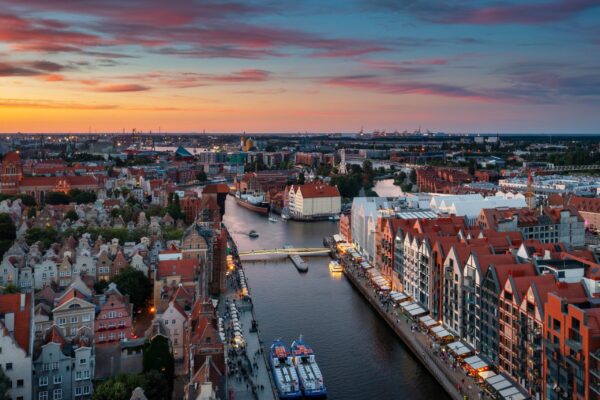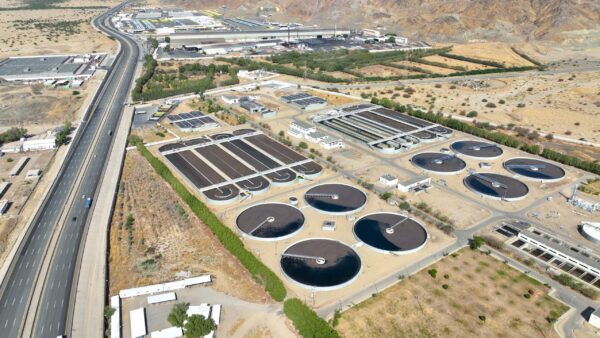
August 27, 2025 | Articles

Hill recently announced a contract award from the NH Hotel Group to provide project management services in support of its asset repositioning plan for seven hotels in Germany. Part of that plan is to find cost savings though energy saving technologies and exploring new ways to reduce energy costs. Hill is helping its hotel clients implement energy saving technologies that could potentially save up to 40% in annual energy consumption and reduce operating costs for each of the hotel properties.
Early engagement of energy saving solutions on a project is imperative but accurately predicting the patterns of energy consumption in a hotel from the construction to operation phase is always a challenge. “We have the capability to advise a client on implementing energy saving solutions in the design and planning phases and carry that forward until the project gets built,” said Jeffrey Sujar Blanco, Hill’s vice president and country manager for Hill’s Project Management Group in Western Europe. “We are looking to provide flexible, dynamic, cost saving solutions for investors or anyone who wants to undertake a hotel project,” Blanco said.
As a rule of thumb, the largest energy consumption comes from a hotel’s HVAC (heating, ventilation and air conditioning) systems at about 45% of consumed energy. This is followed by hot water supplies at 23%, lighting at 17%, laundry and cooking at 12% and the remaining 3% for elevators. But this rule of thumb doesn’t always provide the most accurate predictions that are needed to obtain the greatest energy savings. To obtain the most accurate predictions it is necessary to factor the classification/category of a hotel; number of rooms; geographical locations (city, beach or mountain); height above sea level; its planned use as a business or tourism destination; and use of other spaces.
By working with an experienced project manager, such as Hill International, in the design and planning phase of a hotel, hotel developers can target areas for energy savings that are not available once the hotel is constructed. Potential energy savings can be found through careful planning of the shape of the facility and its orientation. Equally important is using the correct materials and thermal insulation, including double glazing, as well as the use of blinds and external horizontal sunshades. Selection of the proper construction materials could result in direct or indirect savings of up to 23%.
With advancements in technology and building construction methods and materials, some methods of energy savings that were difficult to achieve earlier are now within grasp. Some of the highest savings are achieved by utilizing photovoltaic (solar) panels for electricity and thermal panels for hot water. Other technologies include variable air volume (VAV) systems equipped with variable speed motors, free cooling systems, heat dissipation towers and water chillers, as well as heat recovery from the condensing side of water chillers.
To obtain the maximum benefits from these technologies, it is critical that these be incorporated early in the planning process of the hotels. An experienced project manager can help hotel developers maximize space on the roof for location of photovoltaic panels and/or thermal panels. The project manager can also recommend correct use of high conductivity porous material which can produce heat exchange effectiveness in excess of 90%.
It is becoming increasingly more common to obtain sustainability certifications such as LEED (Leadership in Energy & Environmental Design) and BREEAM (Building Research Establishment Environmental Assessment Methodology). Coupled with energy cost savings as a priority of a hotel developer, an important starting point will be paying close attention to effective energy solutions in planning and design of hotel projects. Hill is playing an important role in advising and implementing these solutions for hotel clients like NH Group.
By Ashok Dutta
Share

August 27, 2025 | Articles

August 12, 2025 | Articles
Hill Welcomes Ben Schwenk as Senior Vice President in the Kingdom of Saudi Arabia

July 27, 2025 | Articles
The Infrastructure Puzzle: Robert Regalado’s Wholistic Business Development Approach

July 13, 2025 | Articles
Tech-Forward Contracting: A Much-Needed Construction Solution

June 23, 2025 | Articles
Jeffrey Hurley Joins Hill’s Northern California Rail Practice

June 23, 2025 | Articles
Ready, Set, Grow: First VP Chad Koelling Takes Charge of Hill’s Mountain West Region

June 8, 2025 | Articles
PMO in Saudi Arabia: The Holistic Approach to Realizing a National Mega-Portfolio